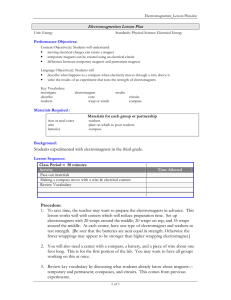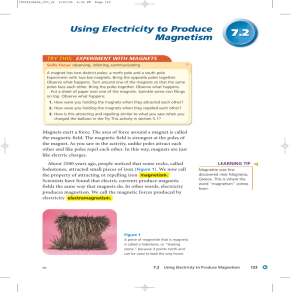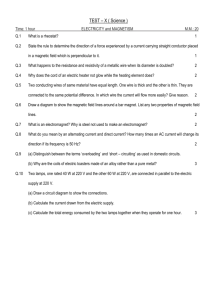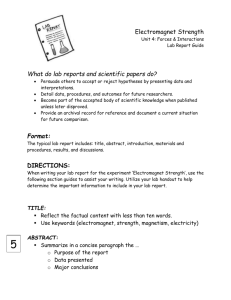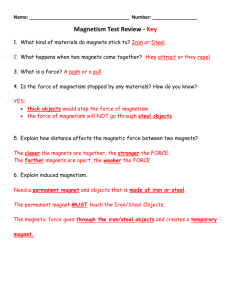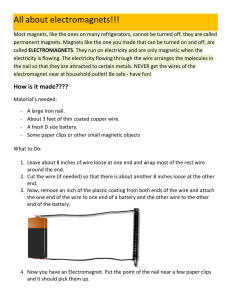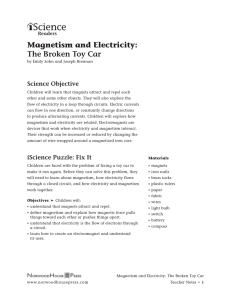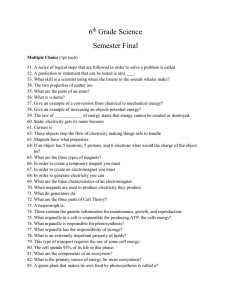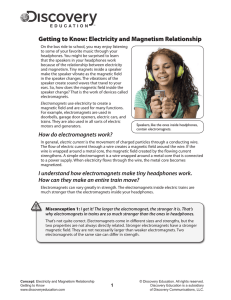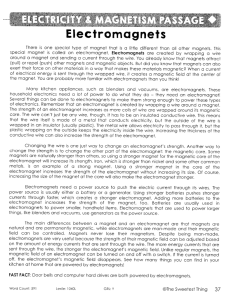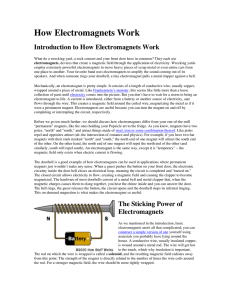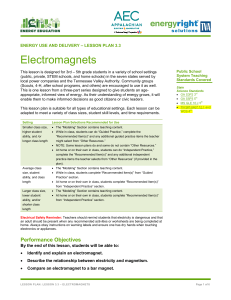Electromagnets Electromagnets are magnets created by the flow of electricity. ... flows through a wire, a magnetic field is created. ...
advertisement
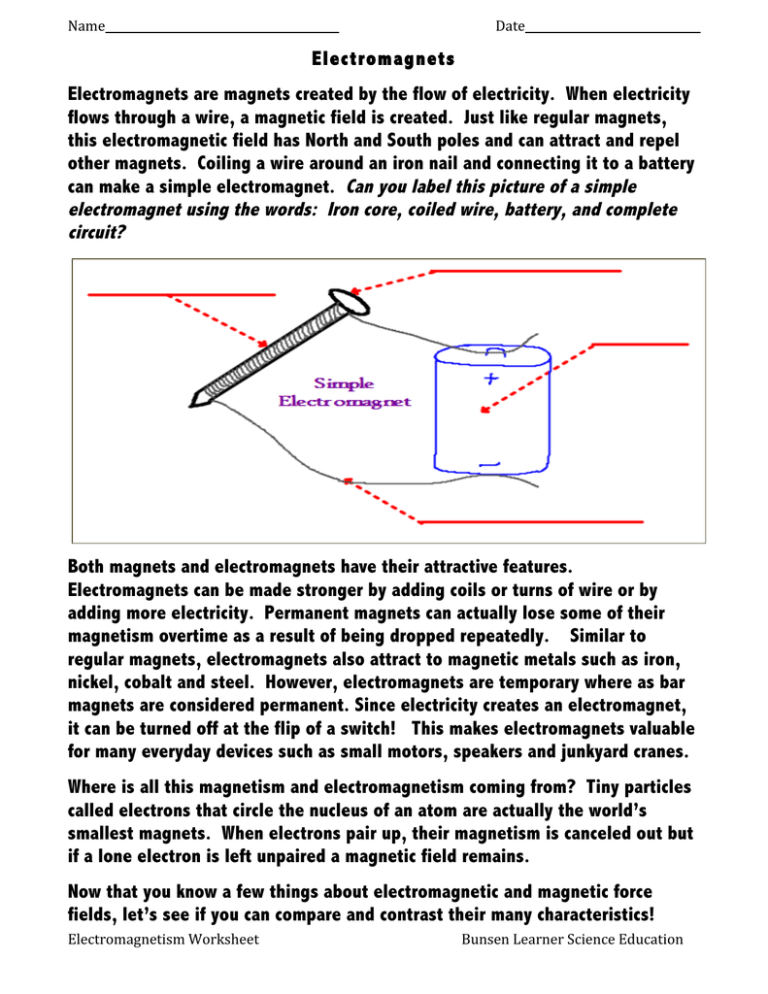
7)(#. . . . . . . . ....................8)%#. . . . . Electromagnets Electromagnets are magnets created by the flow of electricity. When electricity flows through a wire, a magnetic field is created. Just like regular magnets, this electromagnetic field has North and South poles and can attract and repel other magnets. Coiling a wire around an iron nail and connecting it to a battery can make a simple electromagnet. Can you label this picture of a simple electromagnet using the words: Iron core, coiled wire, battery, and complete circuit? ! Both magnets and electromagnets have their attractive features. Electromagnets can be made stronger by adding coils or turns of wire or by adding more electricity. Permanent magnets can actually lose some of their magnetism overtime as a result of being dropped repeatedly. Similar to regular magnets, electromagnets also attract to magnetic metals such as iron, nickel, cobalt and steel. However, electromagnets are temporary where as bar magnets are considered permanent. Since electricity creates an electromagnet, it can be turned off at the flip of a switch! This makes electromagnets valuable for many everyday devices such as small motors, speakers and junkyard cranes. Where is all this magnetism and electromagnetism coming from? Tiny particles called electrons that circle the nucleus of an atom are actually the world’s smallest magnets. When electrons pair up, their magnetism is canceled out but if a lone electron is left unpaired a magnetic field remains. Now that you know a few things about electromagnetic and magnetic force fields, let’s see if you can compare and contrast their many characteristics! !"#$%&'()*+#%,-(./'&0-1##%. .....................................23+-#+.4#)&+#&.5$,#+$#.!63$)%,'+. . . . . . . . . . . . . . . . . . . . . . . . . . . . . . . !"#$%&'()*+#%,-(./'&0-1##%. .....................................23+-#+.4#)&+#&.5$,#+$#.!63$)%,'+. . !"#$%&'()*+#%,-(./'&0-1##%. .....................................23+-#+.4#)&+#&.5$,#+$#.!63$)%,'+.
